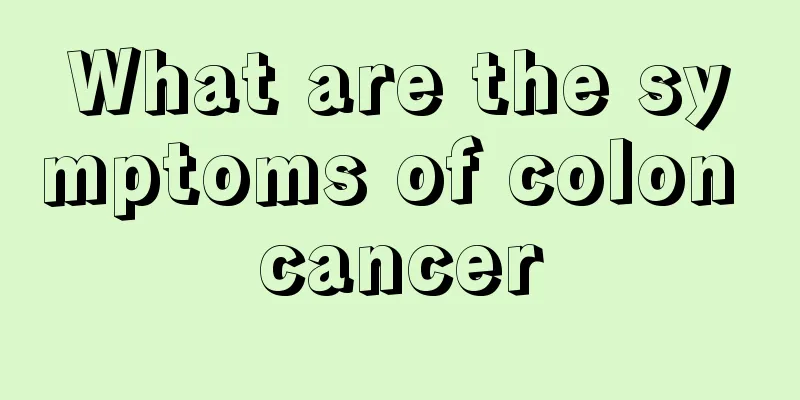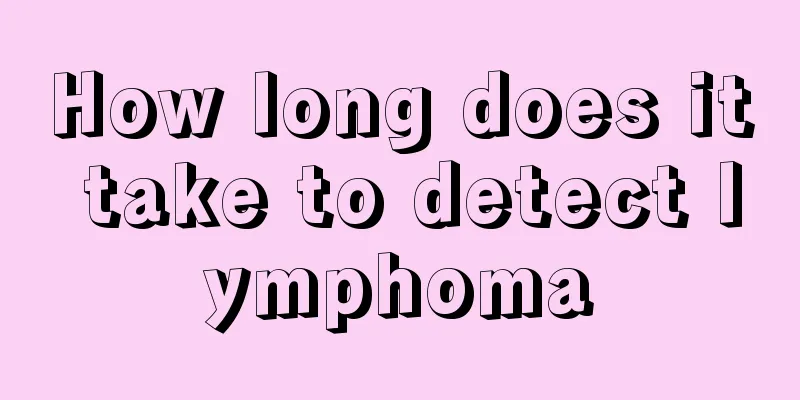What are the symptoms of colon cancer

|
The early symptoms of colon cancer are not typical and are easily ignored by patients. In the early stage of the disease, there may be symptoms such as abdominal distension and indigestion. As the disease progresses, the patient's body will gradually become thinner and lose appetite. As the disease progresses, the patient's bowel habits will change and blood in the stool will appear. The following is an introduction to the symptoms of colon cancer: (I) Early symptoms: In the earliest stage, there may be abdominal distension, discomfort, and indigestion-like symptoms, followed by changes in bowel habits, such as increased bowel movements, diarrhea or constipation, and abdominal pain before defecation. Later, there may be mucus in the stool or mucus-purulent blood in the stool. (B) Symptoms of poisoning: Due to the blood loss caused by tumor ulceration and the absorption of toxins, patients may often experience anemia, low fever, fatigue, weight loss, edema, etc., among which anemia and weight loss are particularly prominent. (III) Manifestations of intestinal obstruction: Symptoms of incomplete or complete low-position intestinal obstruction, such as abdominal distension, abdominal pain (distension or colic), constipation or constipation. Physical examination can reveal abdominal distension, intestinal type, local tenderness, and strong bowel sounds. (IV) Abdominal mass: It is a tumor or a mass that has infiltrated and adhered to the omentum and surrounding tissues. It is hard and irregular in shape. Some of them may have a certain degree of mobility along the intestinal tract. In the late stage, the tumor infiltration is more severe and the mass may be fixed. (V) Late stage manifestations: Signs of liver metastasis such as jaundice, ascites, edema, as well as cachexia, a mass in the anterior rectal fossa, and enlarged supraclavicular lymph nodes, which are manifestations of distant tumor spread and metastasis. The late-stage symptoms of colon cancer are very obvious, but the best time for treatment has been lost. For malignant tumors, timely detection of the disease is a very important aspect, but the early symptoms of colon cancer are generally not obvious. It is recommended to have regular physical examinations, especially for high-risk groups, so that the disease can be detected in time. |
<<: What are the early symptoms of colon cancer
>>: What are the symptoms of colon cancer
Recommend
Is it good to have a baby with ovarian cancer?
With the development of society and the accelerat...
Side effects of blue light treatment for acne
Looking through the various methods of removing a...
What are the symptoms of acute gastric dilatation
The symptoms of acute gastric dilatation are that...
What are the dangers of surgery for body odor
Summer is here, the weather is hot and people swe...
What can't people with pituitary tumors eat
Dietary conditioning is very important for patien...
What is the reason for high mucus in urine routine examination
The problem of high mucus in urine routine examin...
What medicine is good for skin cancer
The number of people suffering from skin cancer h...
How to make homemade soy sauce
Soy sauce is one of the essential seasonings when...
What are the benefits of washing your face with hot and cold water
Some friends like to wash their faces with cold w...
Can eating walnuts prevent prostate cancer?
Recently, a study by the University of Texas Heal...
What are the harms of hair dye to hair
Hair dyes contain a lot of irritating chemicals, ...
The treatment of lymphoma needs to be judged based on many factors
The treatment of lymphoma needs to be judged base...
Key points for nursing care of melanoma
What are the key points of melanoma care? Bad liv...
What are the factors that cause gastric cancer?
Gastric cancer is one of the most common malignan...
What is the difference between toothfish and silver cod
There is a big difference between toothfish and s...









